On 8 March, International Women’s Day will be celebrated around the world.
At Save the Children, we’re marking it by hearing from some of the bold, brave women we’ve been lucky enough to meet on our travels.
Meet Alice
If you travel 15 miles north of Liberia’s capital city, Monrovia, cross over a river and walk past a small cluster of houses, you come to a clearing and a group of vivid blue buildings.
This is the White Plains Clinic, where Alice works as a midwife.
When Alice first started working at the clinic it was just a single building. Small, dark and cramped with no mains electricity or piped water.
Here, she reflects on how a new clinic built and equipped by Save the Children has breathed new life into the community. She also looks back over her own life and the moments that have made her who she is today - from civil war and Ebola, to how it feels to have a thousand children named after her.
This is Alice, in her own words:
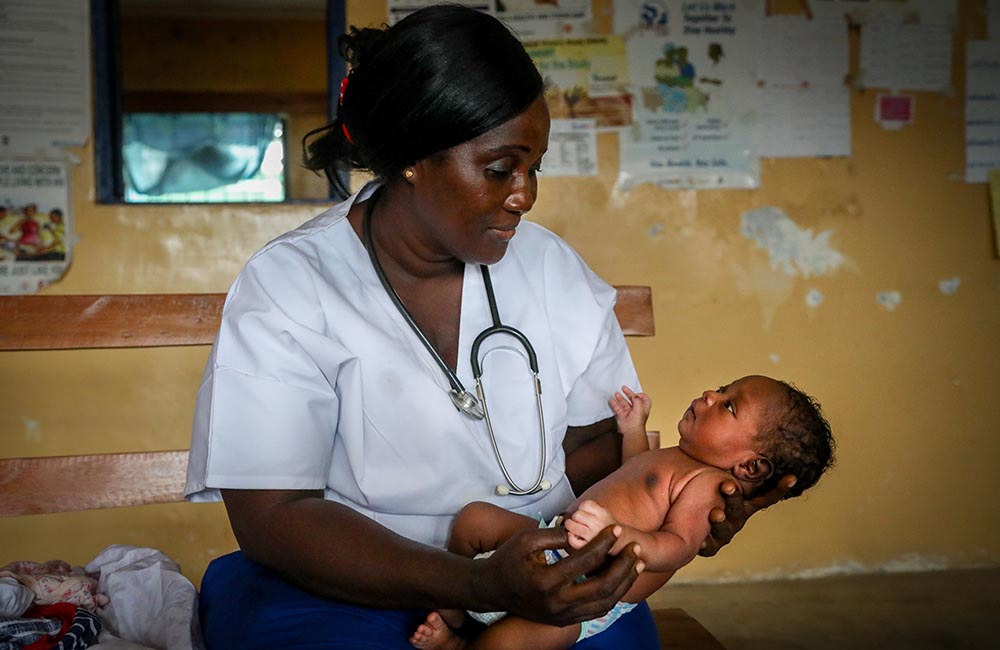
Alice the midwife holds Alex, 2 days old, in White Plains Clinic, Liberia. Alex was named after Alice who delivered him.
Image: Ben White/Save the Children
Before Save the Children came in, we used to do deliveries by candle and flashlight.
When Save the Children first came here, I was doing delivery with telephone in my mouth [to use as a torch]. Can you imagine? No light?
We were carrying out antenatal care, doing deliveries and giving family planning out all in the same room. It was not safe. It used to bother me, because there was no privacy. Sometimes there would be 20 on the other side waiting, and they would be hearing everything we were discussing in the room, while carrying on with the delivery. It was so terrible, no privacy, everything was exposed.
Since the clinic was built there is no danger, and there is no infection. The place is sterilised, and everything is intact. Now we have privacy, that is the important thing.
My colleagues used to walk 1 hour 20 minutes, three times a week, to go and get vaccines. So, the fridge that Save the Children brought, when I got that fridge at my facility I was so happy. It was like Christmas for me, the biggest day I’ve had in my life.
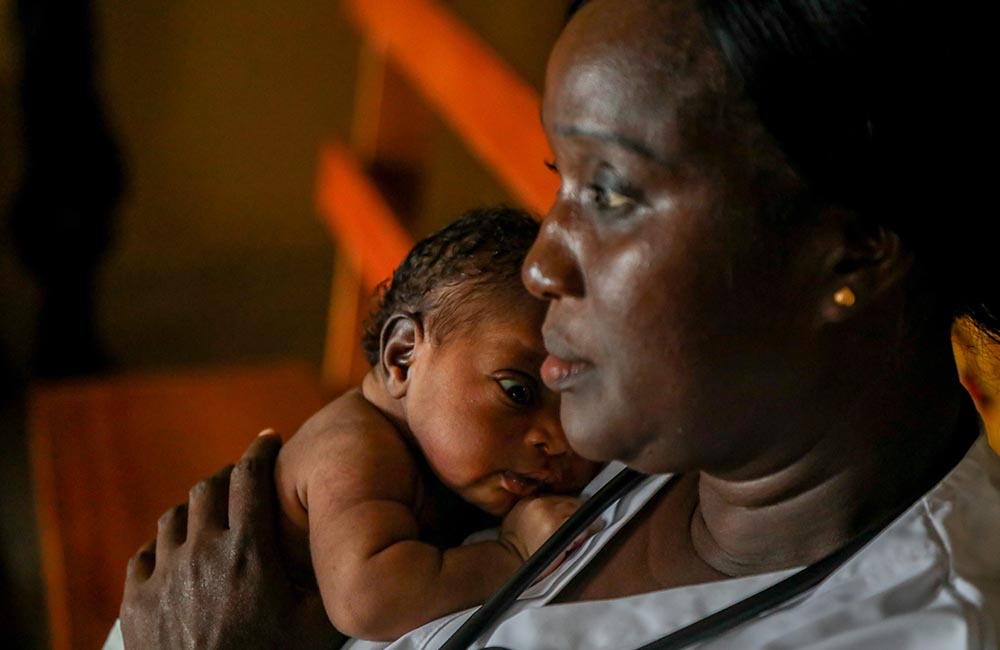
Image: Hanna Adcock/Save the Children
During the war, we were walking and a woman was in labour at the roadside.
She was screaming and screaming. The soldier said “Is there nobody to help? We’ll kill the woman because we don’t want her screaming.”
My son's father said, “don't go there.” But I said: “I will go. You see that woman crying and you say I shouldn't go there, I have to go and help her.”
I was afraid, I wasn’t fully qualified but I carried on her delivery. There was no razor blade, so I bust a bottle and I cut the [umbilical] cord with that. I took care of her with my bare hands, without any gloves.
I hadn’t graduated so the civil war was a setback for me. The civil war was too bad. I went back to school right after the war, aged 20. I used to be ashamed because I was too old for my class, so I used to be quiet.
But, it was my teacher that said to me, "you can make it."
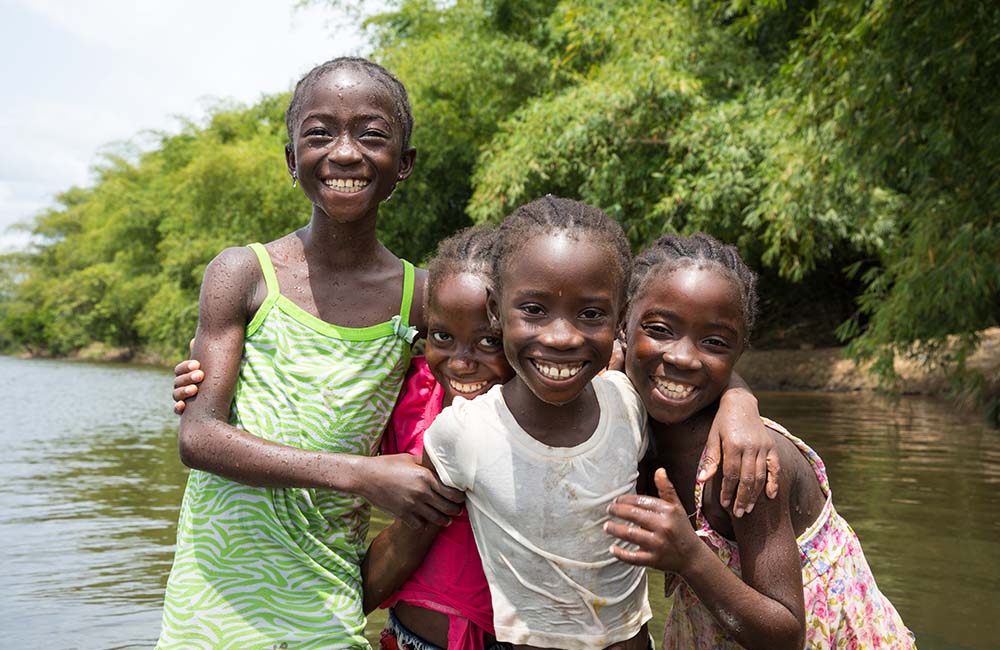
Image: Hanna Adcock/Save the Children
I feel good when a baby is born, I feel I have done something good.
I know I have brought somebody into this world. I have brought a president, I have brought a minister, a pilot, a reverend, a secretary, a deacon, deaconess and so on. I call the labour ward ‘the power house’ because that is where dignitaries are born, presidents of the nation are born.
The first sound of the baby cry … yeah! I love that. It’s so amazing.
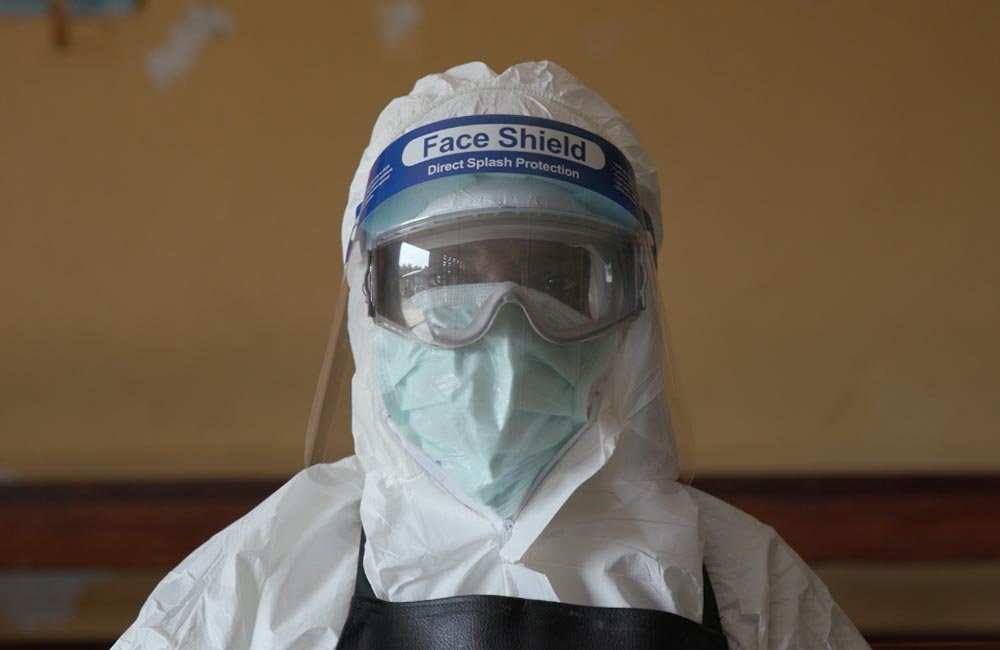
Image: Hanna Adcock/Save the Children
When the Ebola crisis came to Liberia it was terrible.
It was like a selfish disease, dirty disease, it was bad, it was tough. Before you could carry on a delivery or do anything you had to put on the protective suit. We'd be miserable in there, you sweat in there, and Africa is HOT.
First you put on the jumpsuit.
Then you put on the plastic apron.
You put on your cap.
You put on your mask.
You put on your face sheet.
You wear your gloves. The first gloves, and the second gloves.
When you walk in, people say ‘are you going to space?!’.
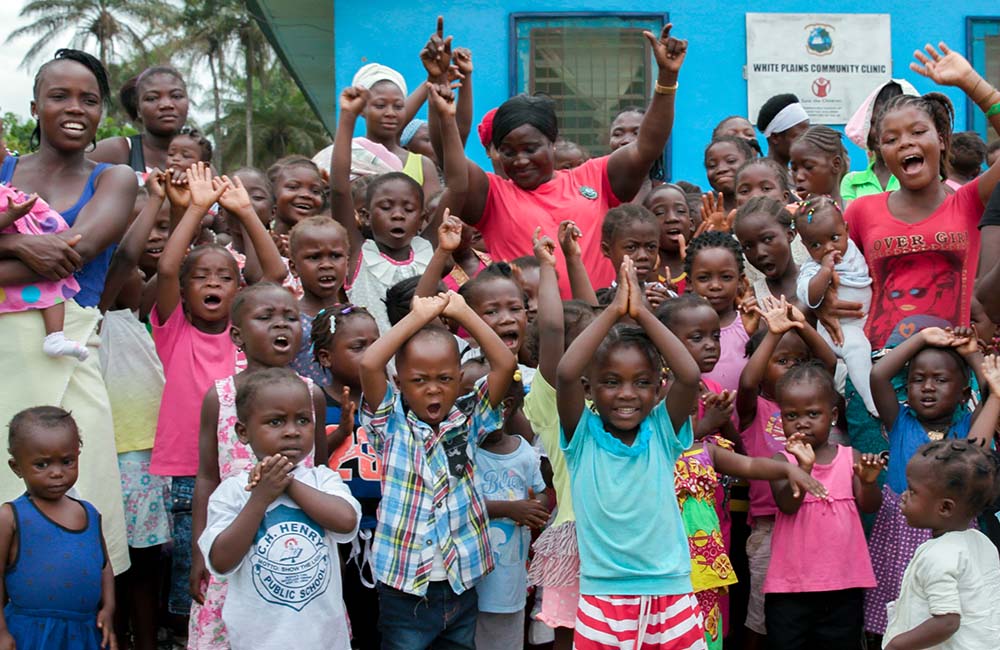
Image: Hanna Adcock/Save the Children
The last time I counted there was 862 Alices.
Now, it has increased to approximately 1,000 plus.
I think parents name their children after me, number one because of my job, my hard work. They love the passion I have for the job, the concern I have for my patients, because whether in the rain or in the sun, I’m looking out for my patient to see that they are doing fine.
I think this is what they have seen, that love, that concern towards them. I think that’s why they are naming their children after me.
I would go to the market, I would hear somebody say, “Alice, come!”. Alices were all over the place. Everywhere Alice, Ellis, Alice. The males are named after me, the females are named after me, and I say “wow, so many Alices!”
Even if I die, I know I will still be remembered. When they call my name, those that know that that baby was named after me, will always remember me. It is a positive thing, because that legacy will remain. It’s my gift to the next generation.
My name will remain on the face of the earth.
I love my name, Alice. The first letter of the alphabet is A. I'm number one! Alice is an action name. A for action. Alice people are active people, they are caring people, they are loving people.